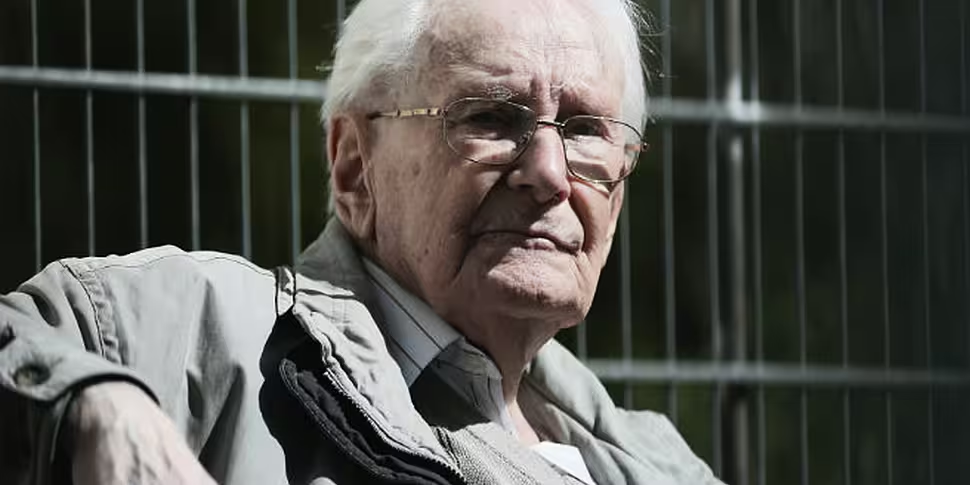The man known as the "bookkeeper of Auschwitz" has been found guilty of being accessory to the murder of 300,000 people and jailed for four years.
Former SS member Oskar Groening, who served at the death camp during the Second Wold War, was convicted by a court in Germany following a trial at which he had asked forgiveness.
The 94-year-old's case could be the last major Holocaust trial as few Nazis suspected of committing crimes are still alive.
Speaking during his four-month trial, attended by Holocaust survivors and victims' relatives, Groening admitted he knew about the killings.
"For me there's no question that I share moral guilt... I ask for forgiveness," he said.
But he told the judges it was for them to decide his "legal culpability".
Speaking outside court, Leon Schwarzbaum - who was held at the camp - said he welcomed Groening's conviction but does not want him to go to jail:
Groening was 21-years-old and by his own admission an enthusiastic Nazi when, at the equivalent of military private-level, he was sent to work at Auschwitz in 1942.
He was responsible for collecting deportees' belongings after they arrived at the concentration camp.
His job involved inspecting the luggage and removing any bank notes. He then sent the stolen money to the SS offices in Berlin to help the war effort.
Prosecutors argued this amounted to helping support the Nazi killing machine.
Groening faced charges related to a period between May and July 1944 when 137 trains carrying around 425,000 Jews arrived at Auschwitz from Hungary.
At least 300,000 were sent straight to the gas chambers, according to court documents.
Prosecution
The case against Groening was unusual as he was not directly involved in the killing of deportees.
The prosecution argued death camp guards can be charged as an accessory to murders, without evidence of involvement in a specific death.
Groening, who uses a walking frame, has previously spoken openly about his time working at Auschwitz in order, he said, to counter Holocaust denial.
He told the German daily Bild in 2005 of his regret, saying he still heard the screams from the gas chamber decades later.
But Groening described himself as a "small cog in the wheel" of the Nazi regime and saw himself as legally innocent.
However, Hanover prosecutors said Groening's actions "helped the NS (Nazi) regime financially and supported its systematic killing campaign".
In 1985, German prosecutors chose not to pursue a case against Groening and dozens of other concentration camp workers.
At the time they decided there was no causal link between their actions and the killings that took place at Auschwitz.
The renewed drive to bring to justice those accused of perpetrating the Holocaust follows a 2011 landmark court ruling.
For more than 60 years German courts had only prosecuted Nazi war criminals if evidence showed they had personally committed atrocities.
But in 2011 a Munich court sentenced John Demjanjuk to five years in prison for complicity in the extermination of Jews at the Sobibor camp, where he had served as a guard, establishing that all former camp guards can be tried.
About 1.1 million people, mostly European Jews, perished at Auschwitz-Birkenau, which was operated by the Nazis from 1940 until it was liberated by Soviet forces on 27 January, 1945.









